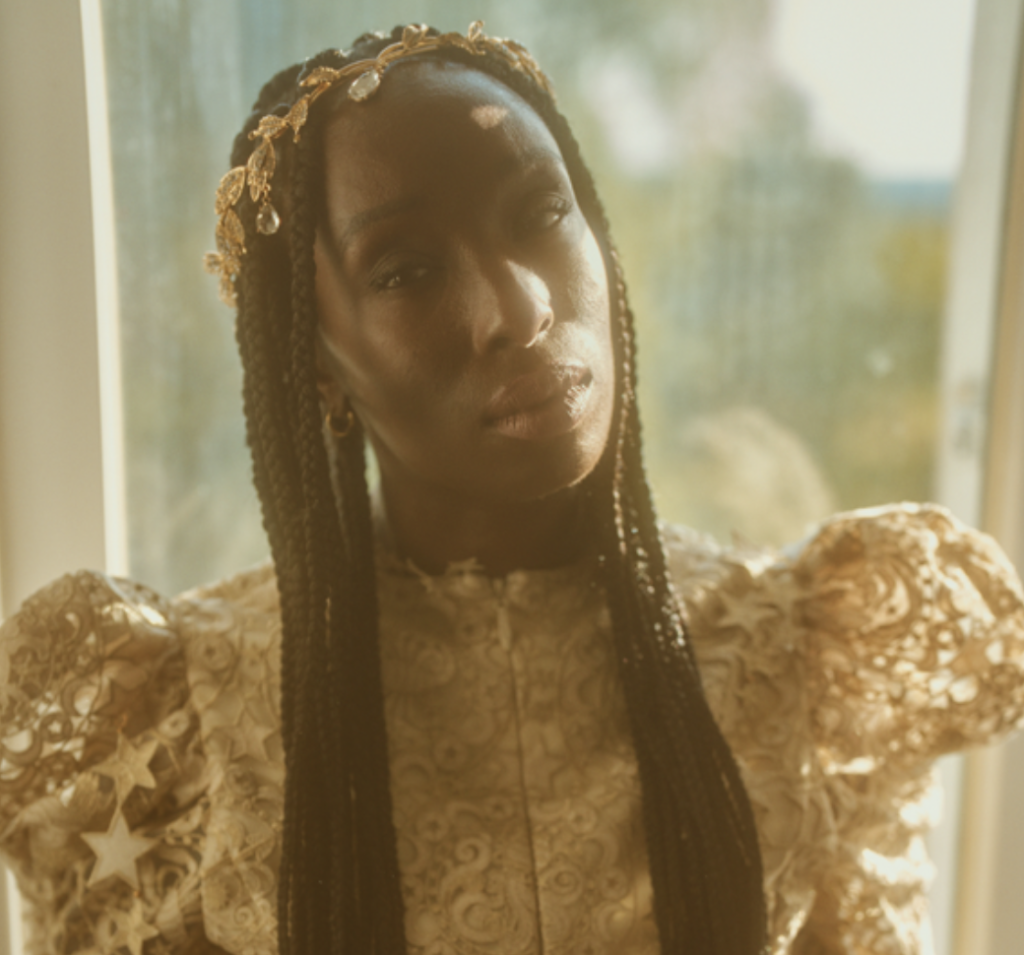For many, the name Eunice Olumide MBE may not need much of an introduction. She has over the years continuously forged a legacy critiquing, reshaping, advocating and creating space for diversity within the UK’s complex creative scene as an activist, rapper, actress, and Scotland’s first Black supermodel. For her latest act, she steps behind the camera to place a much-needed lens on the history of UK hip-hop in her documentary, Secret Lives: The Untold Story of British Hip-Hop “It’s amazing to think that the work that I’m doing could be opening opportunities for women not only in music but in film,”Olumide says.
The documentary highlights the pioneering work of the unknown underground rap scene and focuses on the impact of the evolution of technology as well as the role of accents to an artist’s success. It features; Ben Bailey Smith, Klashnekoff, Blak Twang, Fumez The Engineer, Vincent Olutayo, Angus Batey, Matthew Xia, Blade, MC NI, Carleen Desozer, Cristaleyy, Natalie Illumine.
We spoke to the multidimensional creative to discuss the inspiration behind her directorial debut, navigating multiple creative disciplines, being a woman in hip hop, and more.

RSA: Most of your career has been spent in front of the camera. What inspired you to get behind it?
I always wanted to be behind the camera. Unfortunately, since the media has typically and originally been dominated by the Western canon, African people have always been placed in front of the lens. I think that when it comes to Black women specifically, this is even more of a multifaceted problem.
We make up such a tiny percentage of directors and producers in the world globally. This means that more than 99% of the images that you see of Black women are not created, produced, or directed by Black women. I always felt like there was no other option, and so I decided to get in front of the camera in order to create a career in the industry that I loved. The world is really changing, and there are clear opportunities for diversity now. In the time and space I grew up in, this was not possible.
I’m greatly inspired by Nigeria and Africa and our ability to overcome all obstacles and transcend the apparent lack of opportunity. We are so talented. This has given me the courage to do what I always wanted to do.
RSA: Why was it important for you to have the narrative of Secret Lives for your directorial debut?
Eunice Olumide: I decided to make this film because I have been active in the UK rap and hip-hop scene since I was 15 years old. Instead of making a film about the current musicians and the current artists, I wanted to make a film about the pioneers—people who paved the way in the 70s and 80s and created the blueprint for younger generations. A quote by Marcus Garvey goes, ‘A people without the knowledge of their past history and culture is like a tree without roots.’ I think that as a consequence of the colonization of Africa, we have learned to become dislocated from our history.
We are now in the aftermath of 50 years of hip-hop, and many things have happened. You know, it started out as being about police incarceration, brutality, and the way that the African Diaspora Community had been mistreated. It was a tonic, it was a medicine for the community, and an opportunity for us to mobilize and to come together in unity and to fight the power for justice. I don’t judge, but unfortunately, music in my generation is almost exclusively about hypersexualizing Black women. I don’t think that that’s what we need, and that’s why I made this film to create a historical archive for our community.
RSA: What are some of your earliest memories of rap music and how did they shape the artist that you are today?
Eunic Olumide: My earliest memories of rap were pretty intense but also amazing to be honest with you. I started off singing at church and started singing because of my older brother. The area in the UK that I grew up in was very bad. People were suffering from really serious addictions and mental health issues. So music for me was something that I did literally to help people. All the music I made in my youth was extremely political and very much about community and, and trying to help people navigate serious situations. I was very, very blessed, you know, I spent many many years, just running youth groups, helping people, I got to really work with some of the most remarkable people not only in the history of hip-hop but also in reggae music because I was a conscious artist. It really dictated the direction of my career
RSA: You have an interesting quote which goes, ‘I chose to keep my career as a rapper secret as I believe in the concept of talent first, looks second.’ Can you expand on that?
Eunice Olumide: As a rapper, I actually released my first single back in 2005 called ‘Halal The Beef.’ My group NorthernXposure quickly rose to a level of stardom, and I was also a part of Banana Klan with Roots Manuva as well as Mud Family with Skinnyman in the UK. I realized at a very young age that hip hop was highly exploitative of women. When I began touring with a lot of A-list acts from the United States and the UK, I saw a lot of women in dangerous situations. This made me decide to never become a commercial hip hop artist, and when I did rap, I was going to use pseudonyms. My current one is LOTOS, which means Last of the Old School. Whenever I performed in public, I’d make sure to be completely covered. I’d wear sunglasses, a scarf, baggy clothes, and do anything I could do to make myself less physically attractive.
I also chose to keep my life in music a secret because I was simultaneously in the world of high fashion and didn’t want my appearance or the fact that I worked in fashion to take away from the music. I wanted people to focus on what I was saying and not my looks. I feel that as women, too much focus is placed on how we look on the outside, as opposed to the contents of our mind, heart, and souls. It’s sad that I had to hide who I was and my beauty, but it led me on the right path and protected me. I went on to tour with Damien Marley, Nas, Mos Def, Lauryn Hill, Talib Kweli, Ruff Ryder’s, Wu Tang. I have never stopped releasing music, and this is the first time I’ve talked about this publicly.
RSA: For you as Eunice the rapper and director, why do you think that this story needed to be told at this specific point in time?
Eunice Olumide: I had to make the film now and tell my story because I just had my first baby, and I need to do what I can to protect her by creating a better world. In fact, I was editing and finishing this film while pregnant. It is a time to be truthful, courageous, and bold. I think people in general throughout the world need significant leadership, and artists have always been at the forefront of that by creating movements that change the world.

RSA: Congratulations! You seemed to have been entering so many new phases of your life all at once as a mother and director. Did you find that daunting at the time?
Eunice Olumide: Everything in life that is worthwhile and contributes significantly to the world is always going to be daunting. Doing anything that you can potentially fail at is daunting. But without having that compassion, love, patience, resilience, perseverance, and dedication, you will never try. If you never try, then you’ll live your life regretting it.
RSA: As a multifaceted creative, what is the ethos at the root of all your creative pursuits?
Eunice Olumide: I think the core of my work is about integrity, authenticity, originality, and social responsibility. I really don’t see myself as someone who does multiple things, though I understand that it’s easier for people on the outside to perceive it in that way. I’m just doing me in different circumstances and situations. I feel like everything I do is a natural progression or is operating on a continuum as opposed to this kind of modern philosophy of things starting and stopping. I have often been described as an alchemist or maverick, which is okay with me. What I would say is that I work better in situations where I am not held in one discipline. I like to feel free. I don’t want to feel like I am a slave to anything or anyone besides God, my mum, and the pursuit of kindness, righteousness, and greatness.
One thing I always, however, say to young people is that you’re better doing one thing and doing it brilliantly rather than trying to do everything. This is because everything you do needs to be as good as your peers, minimally, if not supersede them.
RSA: What do you hope viewers take away from this documentary?
Eunice Olumide: The main thing I want viewers to take away from watching the film is that African people are not monolithic and cultural appropriation plays a large role in the way that we’re represented in film and television. So it’s really important for us to be the author of our own representation and of our own destiny.








